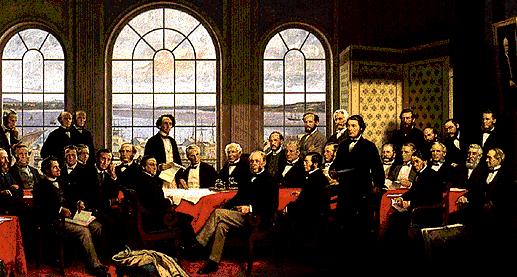MI MiA
 I've already talked about Ignatieff's silence a couple of times so I'm going to wait until all the details are public before weighing in. Politicians are human beings too (except Dick Cheney) and sometimes personal issues must take precedence. And sometimes technology and/or airlines let us down. At this point, we're just hearing about a few no-shows which have some of Michael's supporters a little uneasy. It should be noted that A BCer in Toronto sheds a bit of light on the invisibility act here.
I've already talked about Ignatieff's silence a couple of times so I'm going to wait until all the details are public before weighing in. Politicians are human beings too (except Dick Cheney) and sometimes personal issues must take precedence. And sometimes technology and/or airlines let us down. At this point, we're just hearing about a few no-shows which have some of Michael's supporters a little uneasy. It should be noted that A BCer in Toronto sheds a bit of light on the invisibility act here.In addition, as a supporter of a candidate other than Michael Ignatieff, I don't have a real problem with Michael spending a month in the middle of the leadership race outside of the country. In fact, I would encourage all of Gerard's opponents to go on lengthy vacations overseas for August - I hear Chile is beautiful this time of the year.
So rather than pontificate ad nauseum about the values of communication and the responsibilities of being a party leader, I'll instead take up the Frog Lady's challenge and come up with the top 10 reasons to explain Michael Ignatieff's disappearance:
10. He was flying Air Canada. 'nuff said
9. Jimmy the K had a "chat" with him
8. This is all part of a complex Cylon plan to ensnare the human race
7. Michael is wherever Andrew Coyne goes to when he vanishes without warning
6. He's too distraught over the cancellation of "The One" to campaign right now
5. Michael is simultaneously running in the Hungarian Presidential primaries
4. Has become engrossed with the blogosphere, posting frequently under his alternate identity
3. His campaign team felt this was the best way to dispel accusations that he has spent too much time outside of Canada
2. He's taking construction holidays to show he's in touch with Quebec culture
1. Stephen Harper was in charge of his evacuation from Hungary...so it might be a while
UPDATE: Via the Liberal mole, today's Team Ignatieff newsletter:
Each week we use these updates to give our team the inside scoop on what's happening coast to coast in Michael's campaign. After a few weeks of 'quiet', when Michael and Zsuzsanna were in Hungary with family, we are about to launch into the second half of this leadership campaign.
Tomorrow, Michael will be publishing an op-ed in a major national paper and doing a series of national interviews. Talking Points for everyone on our campaign team will follow in the morning to keep you up to date. From there, Michael picks up his campaign tour by heading to Manitoba on Wednesday, Kenora and Northern Ontario for Thursday, and to Quebec by the weekend.
We had previously planned to kick off our August tour in British Columbia, but an unavoidable delay on Michael & Zsuzsanna's return from Europe affected the scheduling of that trip. Michael is looking forward to heading back to BC for the Liberal Caucus meeting in three weeks and will take some additional time before the Caucus to meet with the team & all of his BC supporters. It’s a 35-degree day in downtown Toronto right now – if there’s one place we’d all like to be, it’s the west coast!
THE PRODIGAL SON RETURNS UPDATE: Iggy's op-ed is in the Globe today and it's, not surprisingly, a very well written and well thought out piece. Mind you, it trumpets the same thing every candidate outside of Brison and Volpe have already said and it would have been nice to hear this from Ignatieff two weeks ago. If Ignatieff wants to spend a month outside of the country during a leadership campaign, that's his (ill-advised, I'd say) prerogative. No one is denying the importance of family. But to go silent is just weird and would be completely unacceptable from a Prime Minister or opposition leader. Even if he was with sick family, he should have spent a few hours a week talking to the campaign team and drafting a statement on the Middle East conflict.






